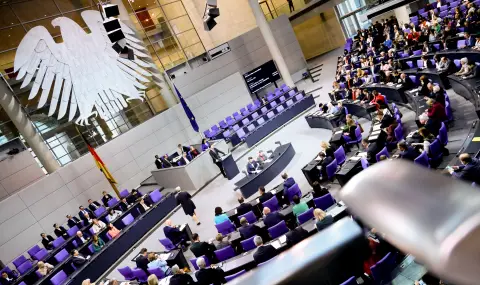On the day of Donald Trump's US election victory, the crisis-ridden German government finally collapsed: the dispute over the direction of economic policy showed how shaky relations are, especially with the smallest coalition partner - SFDP. Her party leader, Christian Lindner, was dismissed by Chancellor Olaf Scholz as finance minister. Two of the remaining three SPD ministers in the cabinet resigned and followed their party leader, while Transport Minister Volker Vissing chose to turn his back on his party and remain in office.
So the tripartite coalition, called "traffic light" because of the colors of the parties in it, it fell apart and the sequence of actions that are necessary for Germany to have a viable government again is being discussed.
1: To complete the most urgent tasks
In the first weeks after the collapse of the ruling coalition, the remaining two coalition partners – Olaf Scholz's Social Democrats and Vice Chancellor Robert Habeck's Greens plan to govern as a minority government to complete some urgent tasks. Among them, Scholz mentioned the adoption of a package of measures in the pensions case, the adoption of the necessary national laws within the framework of the European asylum reform, as well as a package of support measures for ailing companies such as Volkswagen. There was no mention of whether a supplementary budget would be passed for the current year, without which running the country would become even more painful. It also remains unclear how Chancellor Scholz intends to organize a majority in the Bundestag to implement all these tasks. He announced that he would seek urgent talks with the opposition leader – the Christian Democrat Friedrich Merz, but from these circles there have already been requests for the immediate holding of early parliamentary elections, without postponing it to the beginning of next year. Merz himself called on Scholz to immediately request a vote of confidence in the Bundestag and set this as a condition for possible cooperation of the opposition in solving urgent tasks.
2: Vote of confidence in the Bundestag
The chancellor intends to seek a vote of confidence in parliament in mid-January. The likely date for the vote itself is January 15.
Requiring confidence is actually a sort of means of ensuring that there is a majority to govern. In 2001, then-GDP chancellor Gerhard Schröder used it to ensure his majority after fellow party members who disagreed with his policies had voted against sending the Bundeswehr to Afghanistan. In 2005, Schröder was also the first chancellor to use a confidence vote as a tool to trigger new elections.
3: The federal president dissolves parliament
If a minority of MPs vote confidence in the chancellor, he is obliged to propose to the federal president to dissolve parliament. Once this becomes a fact, the German Constitution provides for early parliamentary elections to be held within 60 days.
4: Early elections for the Bundestag
If the chancellor's proposed timetable for a confidence vote in January is followed, Germany's next Bundestag election will take place in mid-March. However, if the vote of confidence is voted in the coming days, the parliamentary elections will be in the first half of January 2025.
The regular parliamentary elections in Germany were actually supposed to take place on September 28, 2025. Now the parties will have to speed up their preparations, nominate candidates and draw up electoral lists. The next election will also be the first under the new electoral law, which stipulates that seats in the future parliament will be limited to a maximum of 630.
5: Compose a cabinet
Polls show that there may be significant changes in the majority in the next parliament. The Free Democratic Party of the current Finance Minister Christian Lindner may not pass the 5% barrier to enter the Bundestag. However, some sociologists see an opportunity to form a cabinet from the CDU/CSU and the Social Democrats – that is, of a broad coalition.
Author: David El
